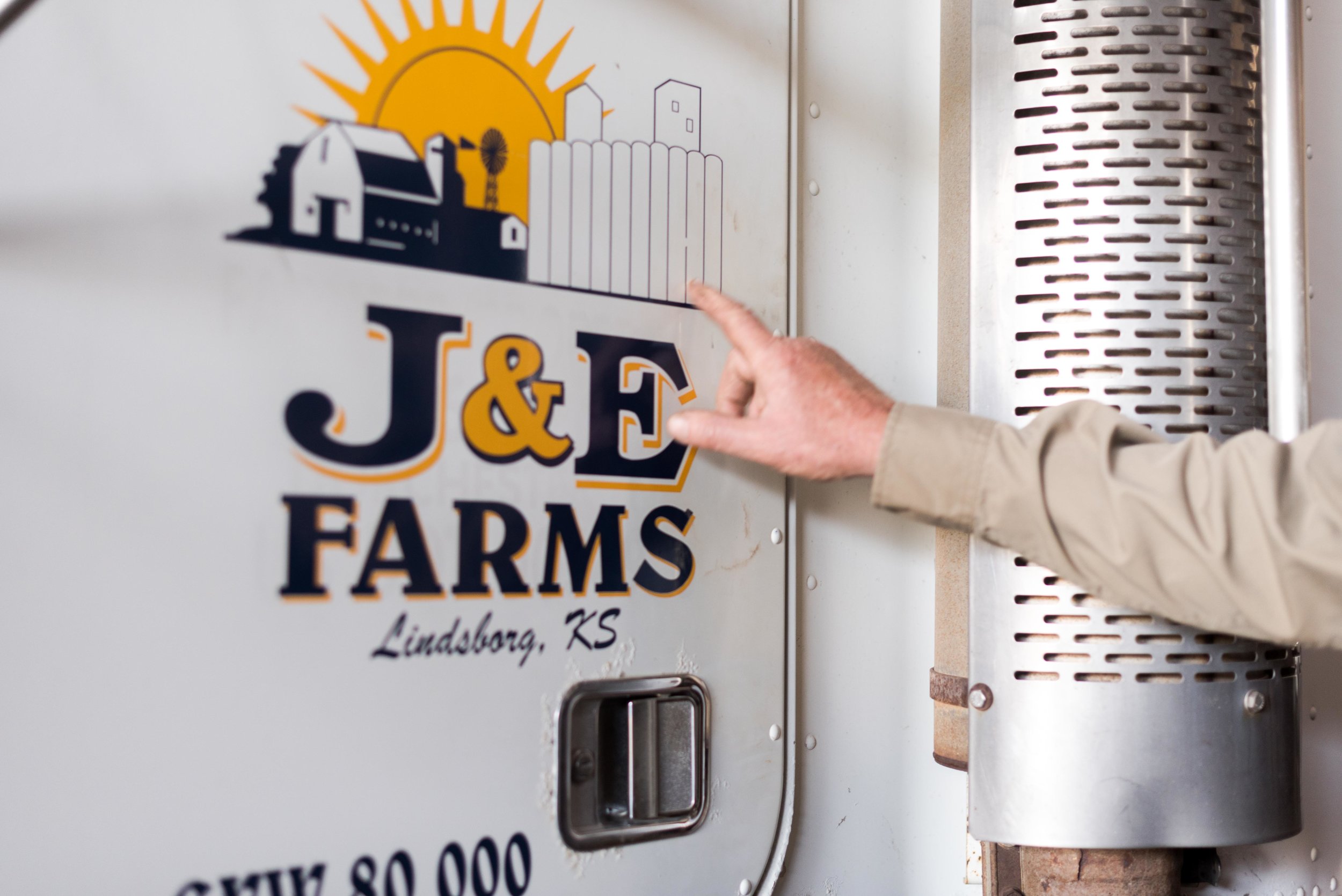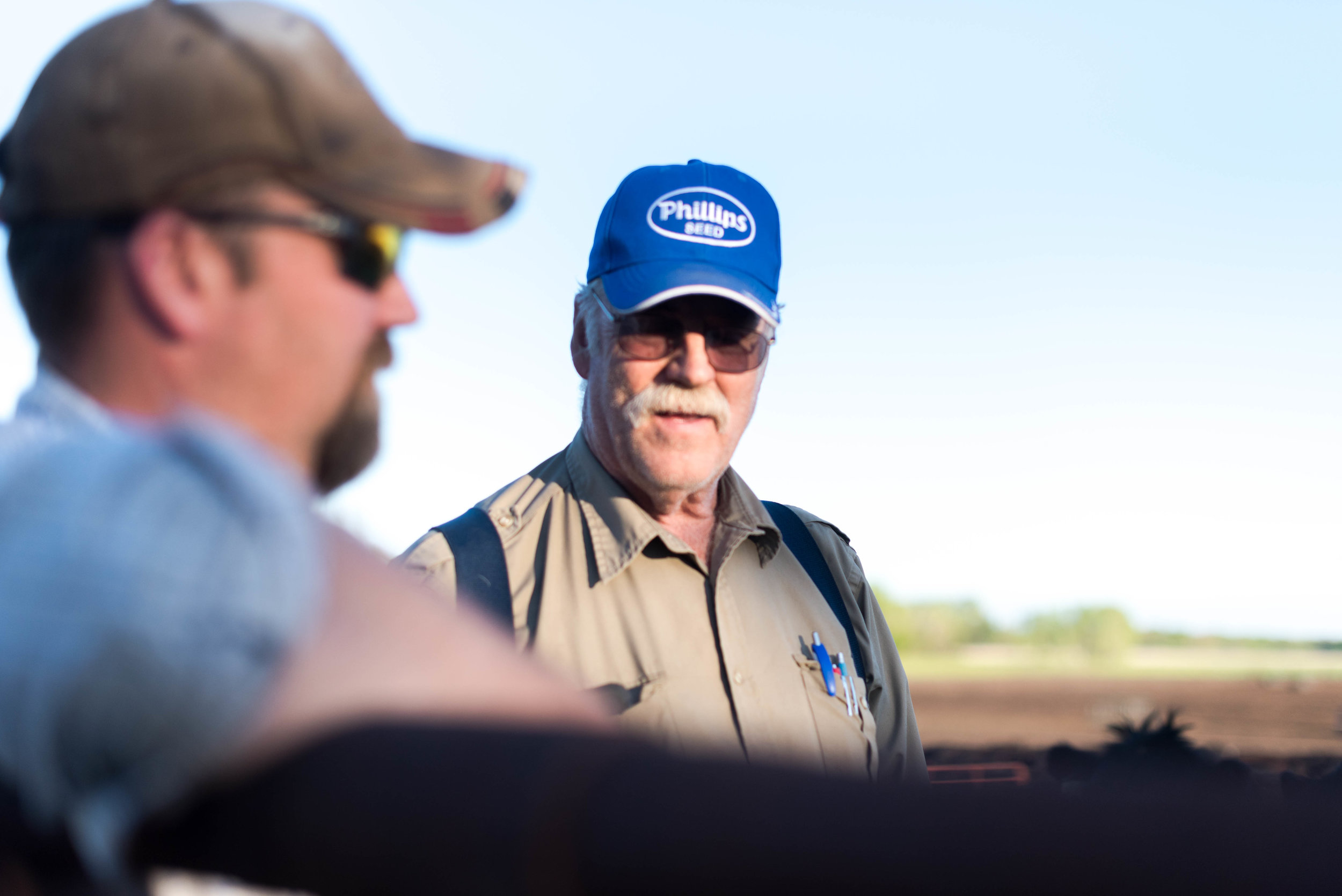Erik Peterson earned an honorary doctorate in farming as a young boy (working with his father) before graduating with his animal science degree from Kansas State University. “Growing up on a farm you learn a thing or two,” he said.
Erik, his wife Amanda and their son Wyatt at home on their farm near Lindsborg
Caring for the land and animals is just in his DNA.
His ancestors broke ground near New Gottland in 1876 and the Petersons have been farming and raising livestock in the Smoky Valley ever since. President Grover Cleveland signed their paperwork for a quarter section of land as part of the Homestead Act in 1885 to finalize the deed.
Now the operation he shares with his dad, John Peterson, is spread across two farms located east of Lindsborg. The partnership continues to thrive despite challenges that the forces of nature can bring.
March snow and subzero windchills made spring calving a challenge for many area producers
“This spring calving season was a wreck,” he said.
Rain, mud, blizzards and dangerous windchills proved to be a deadly combination for a number of area producers’ livestock in early 2019. “It’s been one of the worst I can remember,” Erik said.
“A lot of guys got spoiled during the last couple of mild winters,” he said. Cold conditions during spring calving can lead to a number of sleepless nights.
During the worst stretch at Erik’s farm he was sleeping on the couch, then jumping into coveralls every 45 minutes to check on cows and calves through the night. Some that had been vibrant just hours before died in the cold. “Wet just amplifies the cold so much,” he said. A machine shop converted into a stable and an electric warming box helped save the calves who were the most vulnerable during the subzero windchills.
Peterson explains that changing calving operations to a more gentle time of the year is not easily done because the timing for a calf to be weaned and ready to eat fresh green grass is highly synchronized to take advantage of grass’ peak nutrients.
He added that learning and adapting has always been part of a successful operation and this year will be no different. “I’ll make some changes,” he said, pointing out a new shelter that’s already in progress to help next season.
Change and challenges are a constant in farming, like the bond between Erik and John. The fifth generation farmer smiles when he talks about working with his dad. “A lot of guys can’t make it work with their parents,” he said. “We both enjoy it and after all these years know what the other guy is thinking.”
As the two stood side by side surrounded by Erik’s black Angus heifers, John talked about the family business. “It is so satisfying to have your son say, ‘I want to do what you do. I want to farm.’”
The two agreed that growing crops and growing a business takes patience, faith and the ability to listen to each other’s ideas. “The secret,” John said, “is a lot of give and take.”













